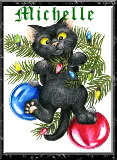12 days of eating, drinking, and all things involved with making merry. Required a lot of holiday stamina. I wonder if we could keep up?
The end of these activities came with Twelfth Night and the crowning of the "King of Misrule."
Feasting
So what did they eat? This largely depended on social standing. Most people had pigs so they would slaughter, salt, and smoke for Christmas bacon and hams. Lords were required to serve their tenants a special feast which included pasties, sausages and black pudding, four courses of fish, fowl and roast meats, and finally dessert of custards, tarts, nuts and sweetmeats. Of course, the feasts of royalty were much more elaborate, and consisted of more exotic offerings, along with casks of wine.
Mummers and the Feast of Fools
Dress up games and role-playing were vastly popular. Mummers liked to dress up in animal masks, or dress as women, and would go around singing festive songs and telling jokes. In the middle of the 12-day party was the Feast of Fools, held on January 1, in which priests, deacons and other church officials were given a brief license to be silly.
Bean Cake
Predicting the Future
Also significant during the twelve days was predicting the future. For instance, a sunny and clear day on Christmas day was a sign that spring would be warm and mild, which meant successful crops and good health overall. On the other hand, strong winds on Christmas day usually meant a bad year for the rich and powerful.
Source and further information at history.com
"Happy Festivus" is the traditional greeting of Festivus, a holiday featured in the Season 9 episode of Seinfeld named "The Strike", which first aired on December 18, 1997. Since then, many people have been inspired by this zany, offbeat Seinfeld holiday and now celebrate Festivus as any other holiday.Sitcoms often combine holidays and family discord. However, one only has to look to our own families to find a little humor. This holiday reminds us how easily we take things too seriously at times. Politics, traditions, grudges and more lead us down unintended paths. Sometimes those paths turn out to be quite the hilarious turn of events. Well, hopefully, they're more hilarious than not. At least while watching through the magnifying glass of the Seinfeld episode safely from our homes, we see a bit of our selves and those we hold dear.Festivus traditions derived from the television episode and the original creator have been combined over the years.
- Adorn an aluminum Festivus pole to be displayed in the home. In the O'Keefe household, there was no pole. Instead, a clock was placed in a bag and nailed to the wall.
- Serve a traditional dinner in the evening.
- During dinner, allow the Airing of Grievances. Each person takes turns describing how the others have disappointed him or her over the past year.
- Feats of Strength follows dinner and involves wrestling the head of the household. Note: The holiday is not complete unless the head of the household is pinned. Failure to pin the head of the household could result in perpetual Festivus.
- Festivus Miracle - a frequent if unimpressive miracle. You may count carrying all the groceries into the house for dinner without tripping or dropping one of the bags as a Festivus Miracle.
FESTIVUS HISTORY
Daniel O'Keefe, Reader's Digest editor and author, created the holiday in response to family tension. One of its central practices is the "airing of grievances." He first celebrated the day in February of 1966. But later, the day was recognized as it is now, on December 23 in honor of O'Keefe's first date with his future wife. O'Keefe's son wrote the Seinfeld episode featuring the celebration.
What I always say today...Merry Christmas Eve Eve!






No comments:
Post a Comment
Your comments are welcome and appreciated. Blessed Be.